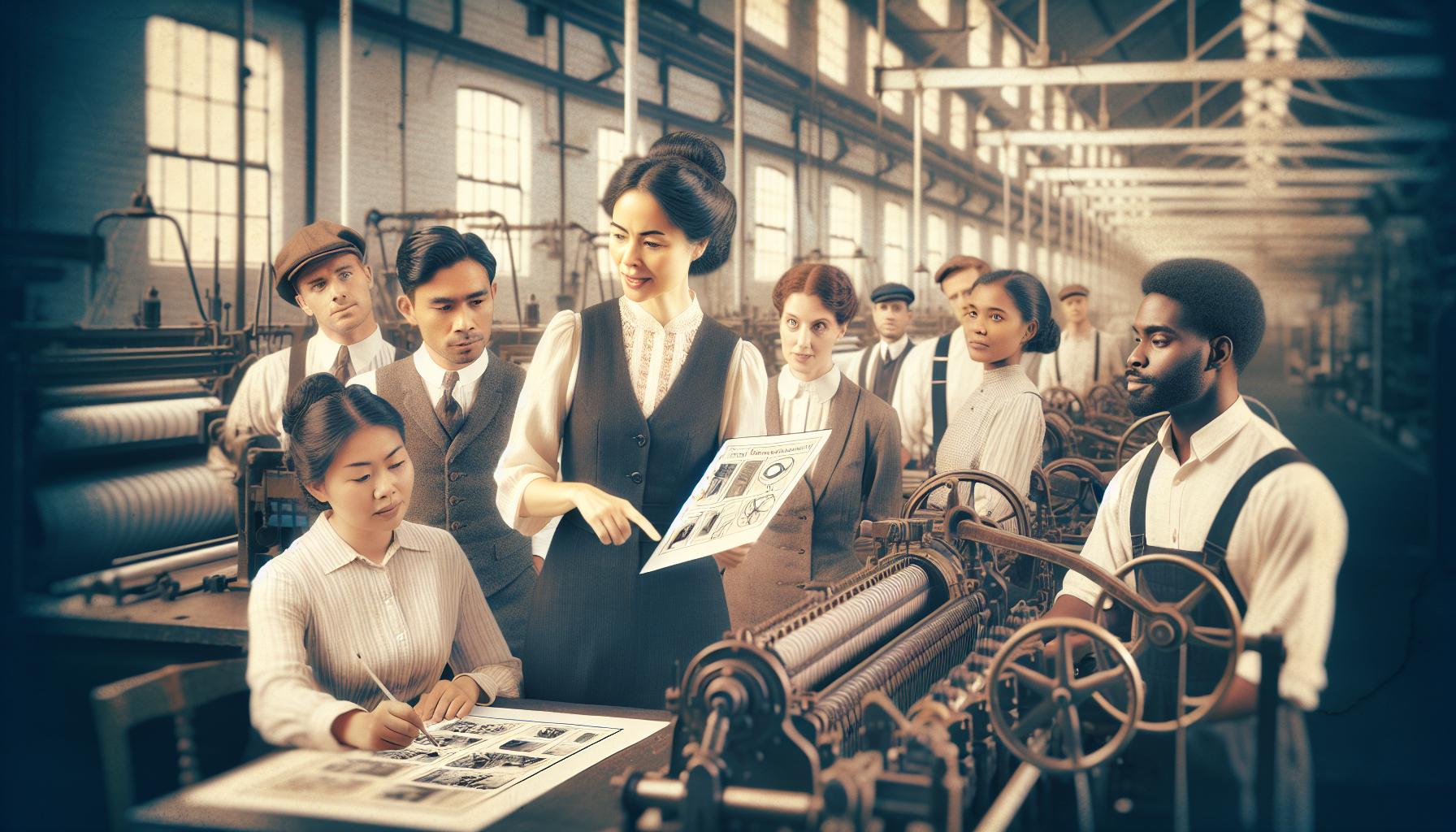Accidents at work can be distressing and leave lasting impacts on employees’ lives. Many wonder if they can claim compensation for their injuries and what steps they need to take. This article explores the rights of workers, the claims process, and the factors that influence potential compensation, helping individuals navigate their options with confidence.
Understanding Accident Claims
Understanding the process of claiming compensation for an accident at work is essential for employees injured on the job. Employees must be aware of their rights and the factors influencing compensation.
Definition of an Accident at Work
An accident at work refers to an unexpected event occurring during work hours that causes injury or harm. This definition encompasses physical injuries like fractures, cuts, and sprains, as well as psychological conditions arising from workplace stress or harassment. Accidents can take place across various environments, including offices, construction sites, and factories. Incidents resulting from lack of safety measures or equipment malfunction also fall under this definition.
Common Causes of Workplace Accidents
Workplace accidents often result from specific hazards. Some of the most common causes include:
- Slips, trips, and falls: Wet floors, uneven surfaces, or cluttered walkways frequently lead to these incidents.
- Manual handling injuries: Lifting, carrying, or pushing heavy items can cause musculoskeletal injuries.
- Machinery-related accidents: Improper use or maintenance of machinery can result in serious injuries to employees.
- Exposure to hazardous substances: Inadequate safety measures when handling chemicals can lead to health issues.
- Workplace violence: Incidents stemming from aggression or harassment create both physical and emotional injuries.
Recognising these causes is critical for preventing accidents and ensuring a safer working environment.
Eligibility for Claiming

Understanding eligibility is crucial for workers considering compensation claims for workplace accidents. Various factors can determine if an individual can successfully pursue a claim.
Criteria for Making a Claim
- Injury Occurrence: Injury must result from an accident that takes place during work hours.
- Employer Negligence: Claimants must demonstrate that the employer failed to provide a safe working environment, such as inadequate training or maintenance.
- Reporting: Injuries need reporting to the employer immediately, ensuring proper documentation of the incident.
- Medical Evidence: Medical attention is vital for substantiating the injury, with records supporting the claim’s validity.
- Employment Status: Workers, including full-time, part-time, and agency employees, qualify for claims, as long as the injury occurs during employment duties.
Seeking advice from experienced legal professionals can help you navigate these criteria with ease. WT Compensation Lawyers, renowned for their expertise in workplace injury claims, can guide you through the process, ensuring your claim has the best chance of success.
Time Limits for Filing Claims
- Standard Time Frame: Most claims must be filed within three years of the accident date for legal validity.
- Special Circumstances: Certain conditions, such as injuries linked to occupational diseases, can alter the time limit for filing claims.
- Legal Advice: Consulting with a solicitor promptly aids in understanding specific time constraints that may apply based on individual circumstances.
The Claims Process
Understanding the claims process is crucial for workers seeking compensation after an accident at work. Following a structured approach increases the chances of a successful claim.
Steps to Take After an Accident
- Report the Incident: Immediately inform a supervisor or manager about the accident. This ensures proper documentation and triggers workplace safety protocols.
- Seek Medical Attention: Obtain medical treatment even if injuries seem minor. Early assessment provides crucial evidence for future claims.
- Document the Scene: Capture photographs of the accident scene, equipment involved, and any visible injuries. This visual evidence supports the claim.
- Collect Witness Information: Gather names and contact details of any witnesses. Statements from witnesses aid in corroborating the account of the incident.
- Keep Records: Maintain a detailed account of all medical visits, treatments, and related expenses. Accurate records streamline the claims process.
Evidence Needed for a Successful Claim
Compiling evidence strengthens a compensation claim. Essential documentation includes:
- Medical Reports: Detailed medical evaluations highlight injuries and treatment received.
- Accident Report: The employer’s accident report outlines the incident and the circumstances involved.
- Witness Statements: Written accounts from witnesses describe the accident and support the claimant’s narrative.
- Photographic Evidence: Photos of the accident scene, injuries, and equipment involved provide concrete evidence of negligence.
- Employment Records: Documentation that verifies employment status and work duties during the accident period is critical.
Amassing this evidence significantly improves the likelihood of receiving compensation for injuries sustained in workplace accidents.
Legal Support and Representation
Legal support plays a crucial role in navigating claims for accidents at work. Individuals often seek assistance to understand their rights and strengthen their claims for compensation.
The Role of Personal Injury Solicitors
Personal injury solicitors specialise in workplace accident claims. They provide expert advice and representation, guiding claimants through the complex legal processes. Solicitors assess the merits of a case, gather necessary evidence, and negotiate with insurance companies. They also represent clients in court if required, ensuring that proper legal procedures are followed. Having legal representation increases the chance of securing fair compensation.
Costs Associated with Legal Representation
Costs associated with hiring legal representation can vary. Many personal injury solicitors operate on a “no win, no fee” basis, meaning clients only pay if they successfully secure compensation. This arrangement alleviates financial pressure during the claims process. Additional costs may include court fees and expenses for obtaining medical reports. Transparency regarding fees ensures that claimants fully understand their financial obligations before proceeding with a claim.
Conclusion
Navigating the aftermath of a workplace accident can be daunting but understanding the claims process is crucial. Employees have the right to seek compensation for injuries sustained during work hours, provided they can demonstrate employer negligence. Immediate reporting of incidents and thorough documentation are essential steps in building a strong case.
With the support of a personal injury solicitor, individuals can effectively navigate the complexities of their claims. Legal expertise not only helps in gathering evidence but also ensures that claimants receive the compensation they deserve. Prioritising safety and awareness in the workplace can prevent future accidents, ultimately fostering a healthier work environment for everyone.
Frequently Asked Questions
What constitutes a workplace accident?
A workplace accident is an unexpected event during work hours that causes injury or harm to an employee. It can include physical injuries like slips, trips, falls, or even psychological conditions due to stress or violence in the workplace.
Can I claim compensation for my workplace injury?
Yes, you can claim compensation if your injury results from an accident at work. To be eligible, you must demonstrate that your employer was negligent in ensuring safety, and that the injury occurred while you were performing your work duties.
How long do I have to claim compensation?
Generally, you have three years from the date of the accident to file a claim for compensation. However, specific circumstances may affect this time limit, so it’s wise to seek legal advice to clarify your situation.
What evidence do I need for a successful claim?
To support your claim, you should gather evidence such as medical reports, the employer’s accident report, witness statements, photographs of the scene, and records of medical expenses. This evidence is crucial for strengthening your case.
Should I report my injury at work?
Yes, it’s essential to report your injury to a supervisor as soon as possible. Proper documentation helps in the claims process and ensures that your injury is officially recorded, which is beneficial for any future claims.
Who can help me with my claim?
Personal injury solicitors specialise in workplace accident claims and can provide valuable guidance. They assess your case, help gather evidence, negotiate with insurance companies, and represent you if the matter goes to court.
How do I find a good personal injury solicitor?
Look for solicitors with experience in workplace accident claims and positive client reviews. It’s beneficial to consult those who operate on a “no win, no fee” basis to alleviate financial concerns during your claim process.

